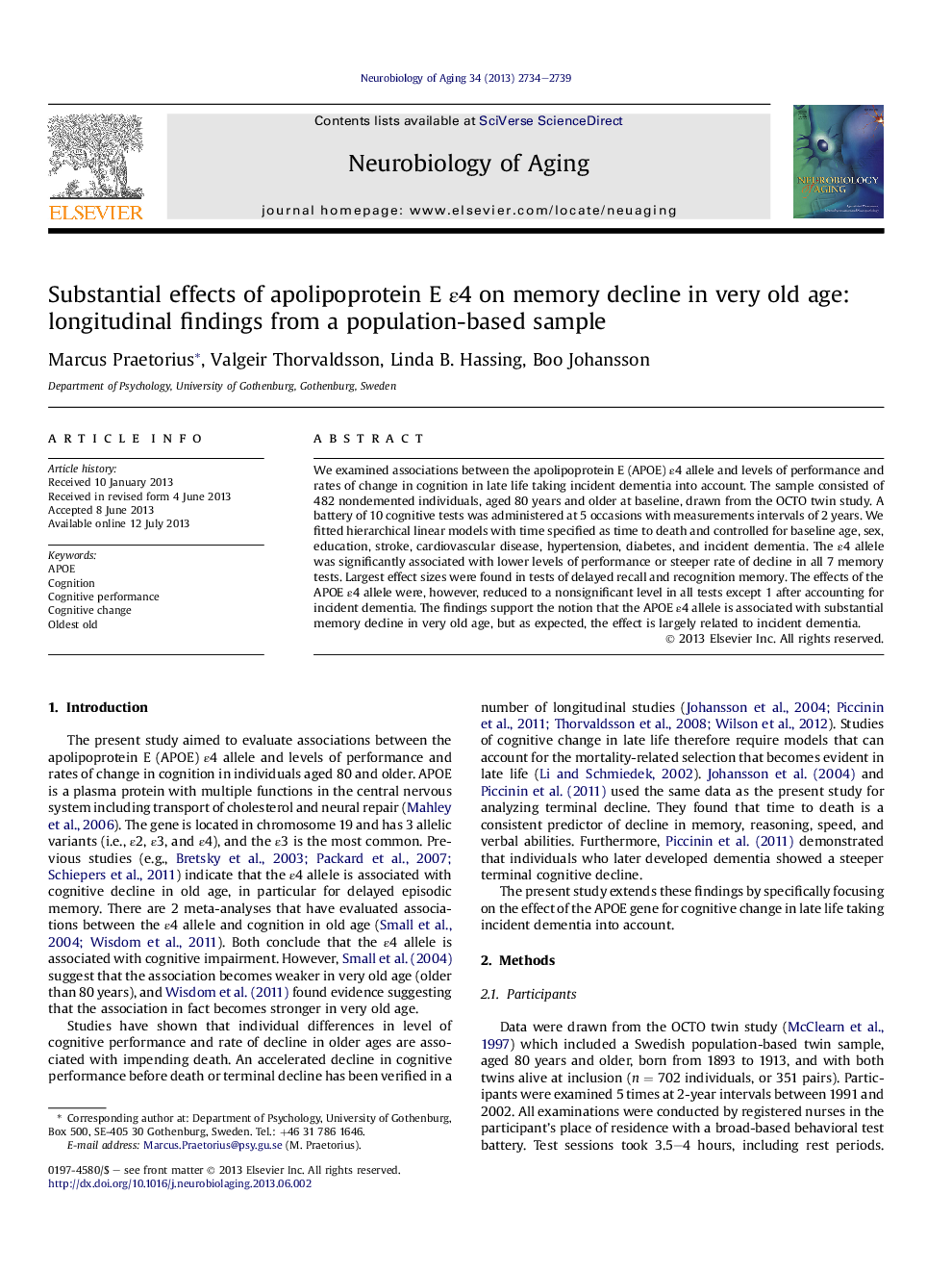| Article ID | Journal | Published Year | Pages | File Type |
|---|---|---|---|---|
| 6806701 | Neurobiology of Aging | 2013 | 6 Pages |
Abstract
We examined associations between the apolipoprotein E (APOE) ε4 allele and levels of performance and rates of change in cognition in late life taking incident dementia into account. The sample consisted of 482 nondemented individuals, aged 80 years and older at baseline, drawn from the OCTO twin study. A battery of 10 cognitive tests was administered at 5 occasions with measurements intervals of 2 years. We fitted hierarchical linear models with time specified as time to death and controlled for baseline age, sex, education, stroke, cardiovascular disease, hypertension, diabetes, and incident dementia. The ε4 allele was significantly associated with lower levels of performance or steeper rate of decline in all 7 memory tests. Largest effect sizes were found in tests of delayed recall and recognition memory. The effects of the APOE ε4 allele were, however, reduced to a nonsignificant level in all tests except 1 after accounting for incident dementia. The findings support the notion that the APOE ε4 allele is associated with substantial memory decline in very old age, but as expected, the effect is largely related to incident dementia.
Related Topics
Life Sciences
Biochemistry, Genetics and Molecular Biology
Ageing
Authors
Marcus Praetorius, Valgeir Thorvaldsson, Linda B. Hassing, Boo Johansson,
